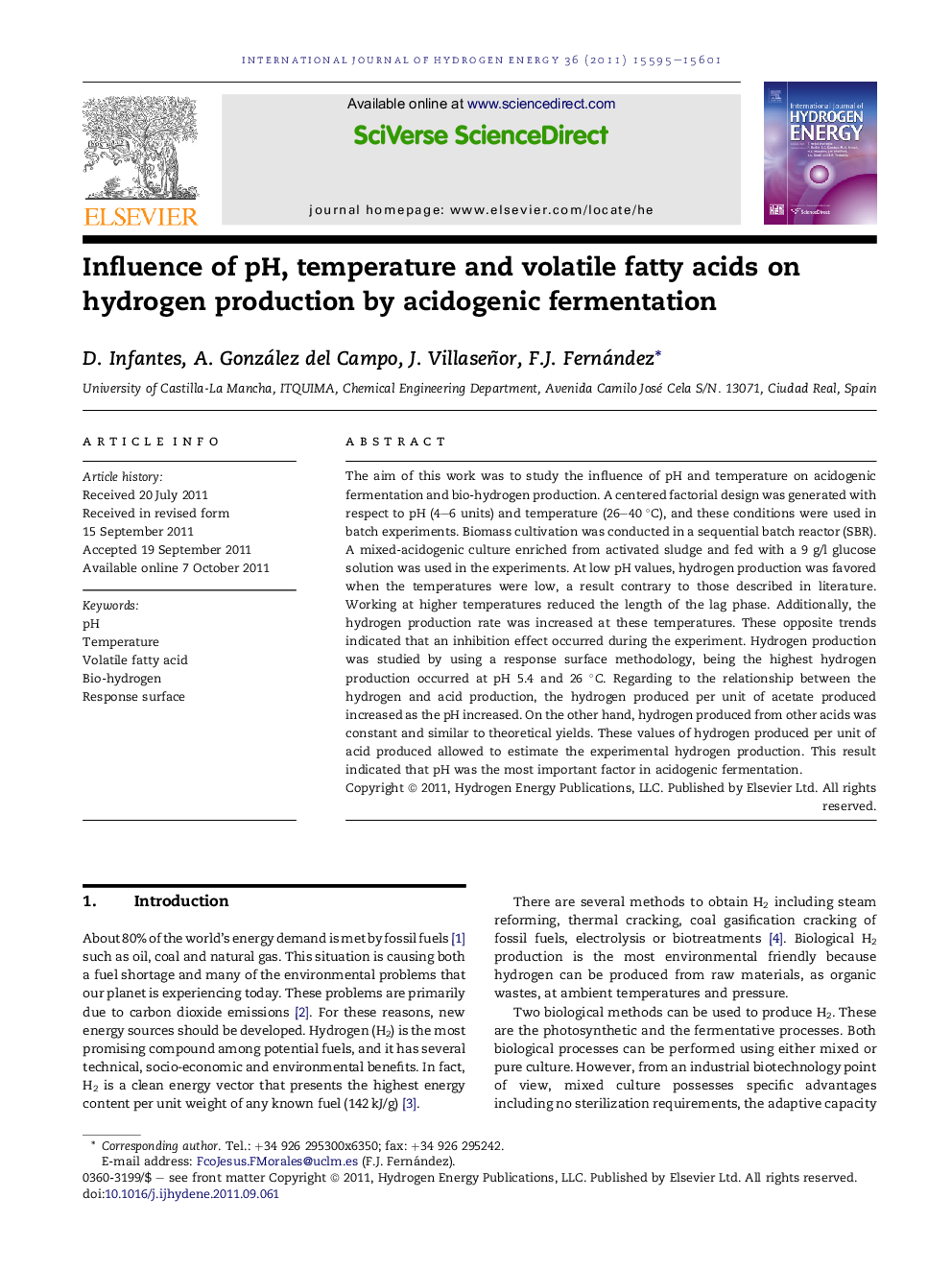| Article ID | Journal | Published Year | Pages | File Type |
|---|---|---|---|---|
| 1277356 | International Journal of Hydrogen Energy | 2011 | 7 Pages |
The aim of this work was to study the influence of pH and temperature on acidogenic fermentation and bio-hydrogen production. A centered factorial design was generated with respect to pH (4–6 units) and temperature (26–40 °C), and these conditions were used in batch experiments. Biomass cultivation was conducted in a sequential batch reactor (SBR). A mixed-acidogenic culture enriched from activated sludge and fed with a 9 g/l glucose solution was used in the experiments. At low pH values, hydrogen production was favored when the temperatures were low, a result contrary to those described in literature. Working at higher temperatures reduced the length of the lag phase. Additionally, the hydrogen production rate was increased at these temperatures. These opposite trends indicated that an inhibition effect occurred during the experiment. Hydrogen production was studied by using a response surface methodology, being the highest hydrogen production occurred at pH 5.4 and 26 °C. Regarding to the relationship between the hydrogen and acid production, the hydrogen produced per unit of acetate produced increased as the pH increased. On the other hand, hydrogen produced from other acids was constant and similar to theoretical yields. These values of hydrogen produced per unit of acid produced allowed to estimate the experimental hydrogen production. This result indicated that pH was the most important factor in acidogenic fermentation.
► High temperature and low pH enhanced the inhibition effect of non-dissociated acids. ► pH has a more significant effect than temperature on bio-hydrogen production. ► High temperature caused a reduction in the biomass yield. ► The optimum conditions for hydrogen production were pH 5.4 and 26 °C.
